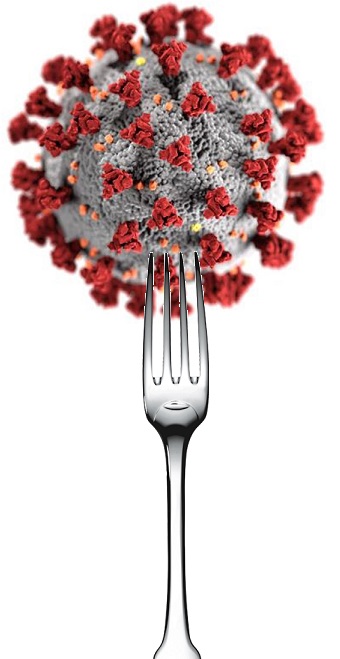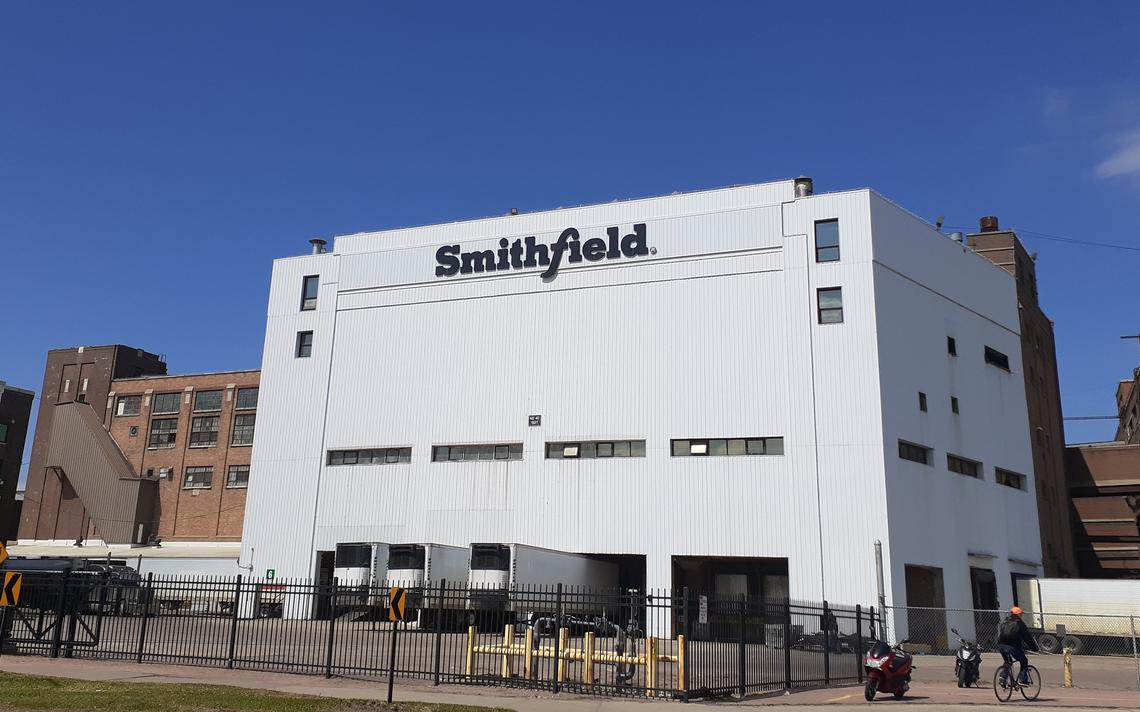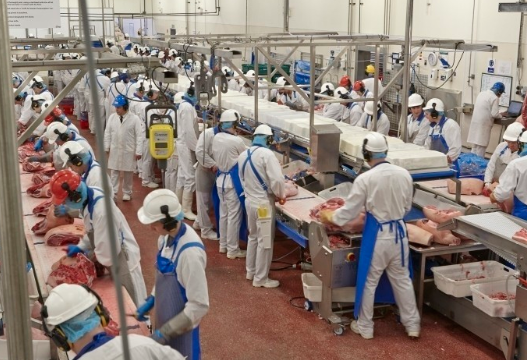Coronavirus is taking its toll from the food industry- however, the supply chain must be secured
Workers are getting sick

The Coronavirus pandemic had impacted meat processing plants, warehouses, and grocery stores, where increasing numbers of workers are getting sick with the Coronavirus. In meat processing plants, workers typically stand elbow-to-elbow to carry out the cutting, deboning, and packing of chicken and beef. Several plants, processing beef and chickens, have closed to slow the virus spread among employees. Across the country, major meat processors are starting to shut down plants as employees are getting infected by the Coronavirus.
Meat and poultry plant closing due to the Coronavirus expose the vulnerability of global food supply chains that are needed to keep grocers’ shelves full. The closed plants and sick workers are making it harder for food to get from farm to table.
The Times reports that the increase in COVID-19 cases has also increased the concerns over workers’ safety. At meat facilities owned by JBS and Tyson Foods Inc., deaths of employees have been reported. Laborers have staged walkouts to protest working conditions since in meat plants, employees on processing lines are working close together, creating challenges for social distancing. The closure of meat processing facilities is bringing the meat supply dangerously close to the edge and may impede the ability to keep our grocery stores stocked. If an increasing number of plants are forced to close, it will be challenging to identify the tipping point of supply shortfalls.
Food companies have improved procedures to protect employees. Companies are introducing new measures and enforcing current measures to keep employees safe, such as enforce hand washing and spraying down processing and break rooms, staggering shifts, lunch breaks taken alone, providing workers with gloves and masks, plexiglass barriers, and sending home high-risk workers. It is difficult for food processors to balance worker safety and to meet the enormous surge in demand that the COVID-19 has created.
Plants closed due to the Coronavirus
In the past few days, more food facilities saw cases on COVID-19 among employees:
Smithfield Foods pork processing plant in Sioux Falls, South Dakota

Smithfield announced on Easter Sunday that the pork-processing facility in Sioux Falls SD, one of the largest pork processing facilities in the US, would be closed indefinitely. The facility accounts for 4% to 5% of US pork production and employs 3,700 in Sioux Falls.
As of April 15, 2020, 518 Smithfield employees and 126 contacts of workers had tested positive for COVID-19. As part of an investigation into the Coronavirus outbreak, a team from CDC is scheduled to tour the closed Smithfield Foods plant in Sioux Falls, S.D. (Meatingplace).
South Dakota Governor Kristi Noem and Sioux Falls Mayor Paul TenHaken, wrote to Smithfield recommending the company should suspend operations for a minimum of 14 days. They suggested the facility be cleaned, and employees would be given time to recover from any suspected illness.
Smithfield Foods Inc. promised to provide a $100 million responsibility bonus to all its hourly production and distribution center team members, the company announced in a news release.
Smithfield Foods will also close temporarily additional plants due to the Coronavirus. It is closing its plants in Cudahy, Wisconsin, and Martin City, Missouri. The Wisconsin plant near Milwaukee will be closed for two weeks, while the facility in Missouri is closed indefinitely. The two facilities are located close to urban areas in which the spread of COVID-19 has been prevalent. The company said a few employees at the Wisconsin and Missouri plants have tested positive for COVID-19. In the plants, essential personnel will repeat the rigorous deep cleaning and sanitization that have been ongoing at the facilities.
JBS USA Greeley Colorado

Last weekend JBS began plans to test all of its Greeley workforces after learning that two of its employees had died from COVID-19 related complications, and 43 had tested positive for the virus. As a result, JBS announced that the Greeley beef plant would be shut down until April 24. JBS said it would continue to pay its employees during the plant shutdown.
JBS is Greeley’s largest employer with 6,000 people, about 3,500 at the beef plant, and the rest at its corporate headquarters. JBS earlier shut its Souderton PA beef production facility. The company said that there had been increased absenteeism at a few other plants, but most continue to operate “at or near capacity to continue providing food for Americans.” JBS’s decision follows a joint Public Health Order issued on Saturday by the Colorado Department of Public Health and Environment and the Weld County Department of Public Health and Environment, outlining the steps for “JBS to take to address the public health concerns regarding the facility.”
The county health officer determined that in most of the 14 cases in which JBS employees had tested positive for the virus, the workers had been going to work at the plant while their symptoms were apparent. The workers told doctors that “work while sick” culture existed at the plant and that managers and supervisors also were known to go to work while being ill.
JBS has an extensive list of safety measures in place to help manage the outbreak. The measures include promoting physical distancing by staggering starts, shifts, and breaks, increasing spacing in common areas, providing plexiglass dividers in crucial areas, dedicating staff to continuously clean facilities, and temperature-testing all team members before entering the facilities. The company also has made significant donations to help the community in Greeley and Weld County, Colorado to obtain needed supplies.
JBS USA, owned by Brazil’s JBS, SA, operates more than 60 meat, poultry, and prepared food facilities across the US.
Cargill Inc
Cargill temporarily eliminated one shift at its High River, Alberta (Canada), protein facility to protect workers and reduce the potential spread of the Coronavirus in the community.
Eliminating the second shift at the beef harvest facility will allow the company to minimize the impact of COVID-19. The company also implemented additional safety measures like temperature testing, enhanced cleaning and sanitizing, prohibiting visitors, adopting social distancing practices whenever possible, and offering staggered breaks and shift flexibility.
Cargill also shut down its case-ready protein plant in Hazelton, PA, after 164 hourly workers reportedly tested positive for COVID-19. Cargill did not offer a timetable for the plant reopening but said it would do so when it is safe for employees.
Maple Leaf Foods, in Ontario, Canada
Maple Leaf Foods, in Ontario, Canada, suspended operations at Brampton after three employees tested positive for COVID-19. During the closure, the company will deep clean the plant and further investigate the spread of the virus.
Tyson Foods, in Columbus Junction, IA
Tyson stopped operations at its pork plant after 24 cases of COVID-19 were reported at the facility. Tyson is shifting livestock from the Columbus Junction pork plant to other facilities. While the facility is closed, Tyson will make the safety and cleanliness improvements to help mitigate the spread of the virus, including deep cleaning and sanitizing. It is also installing dividers between work areas for social distancing. Face masks and other personnel protective equipment are being deployed for the reopening.
Situation analysis
It is expected that the number of cases of COVID-19 will keep growing at meat plants, farms, warehouses, and packaging facilities across the globe. There is a sharp dichotomy between the need to keep people safe and ensuring that the world has sufficient food.
There is a need for additional measures to ensure the worker’s safety, such as dedicated staff to continuously clean facilities, re-arranging the facility to allow physical distancing, staggering shifts and breaks, increasing spacing in common areas, and temperature-testing of all team members before entering the facilities.
Another essential element is making sure that employees have access to personal protective equipment, including masks and gloves.
